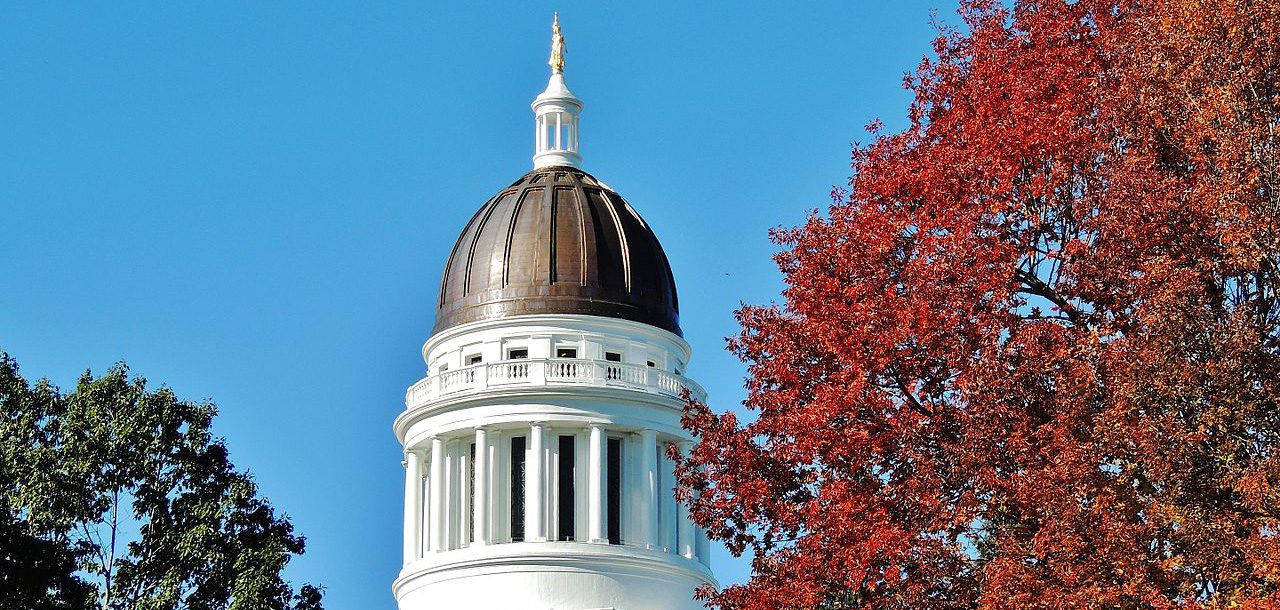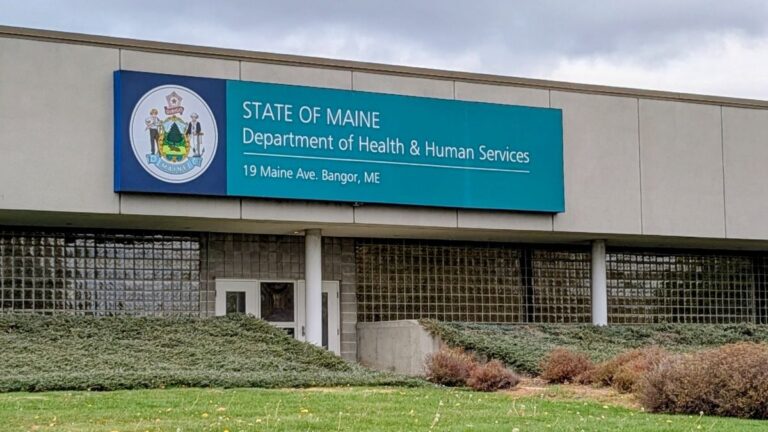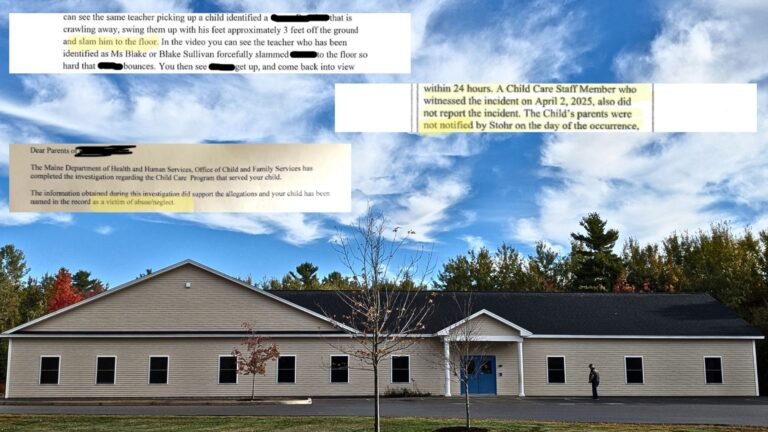Sen. Justin Chenette, D-Saco, came to a statehouse committee room on Feb. 27 to slay dragons.
His target: the lobbyists and special interests whose money and power, he said, “create an appearance of corruption” in the legislature.
His plan: ban lobbyists from ever again throwing money at legislators.
Chenette came armed not with a sword, but with stats: In 2014 and 2015, 400 companies spent $5 million to hire 229 lobbyists to make sure that the bills they like passed, and the ones they didn’t like failed. Chenette called those numbers “insane,” but added “that dollar amount pales in comparison to the amount of financial contributions that flows from these same lobbyists and the groups that hire them directly to legislator’s political action committees and campaigns.”
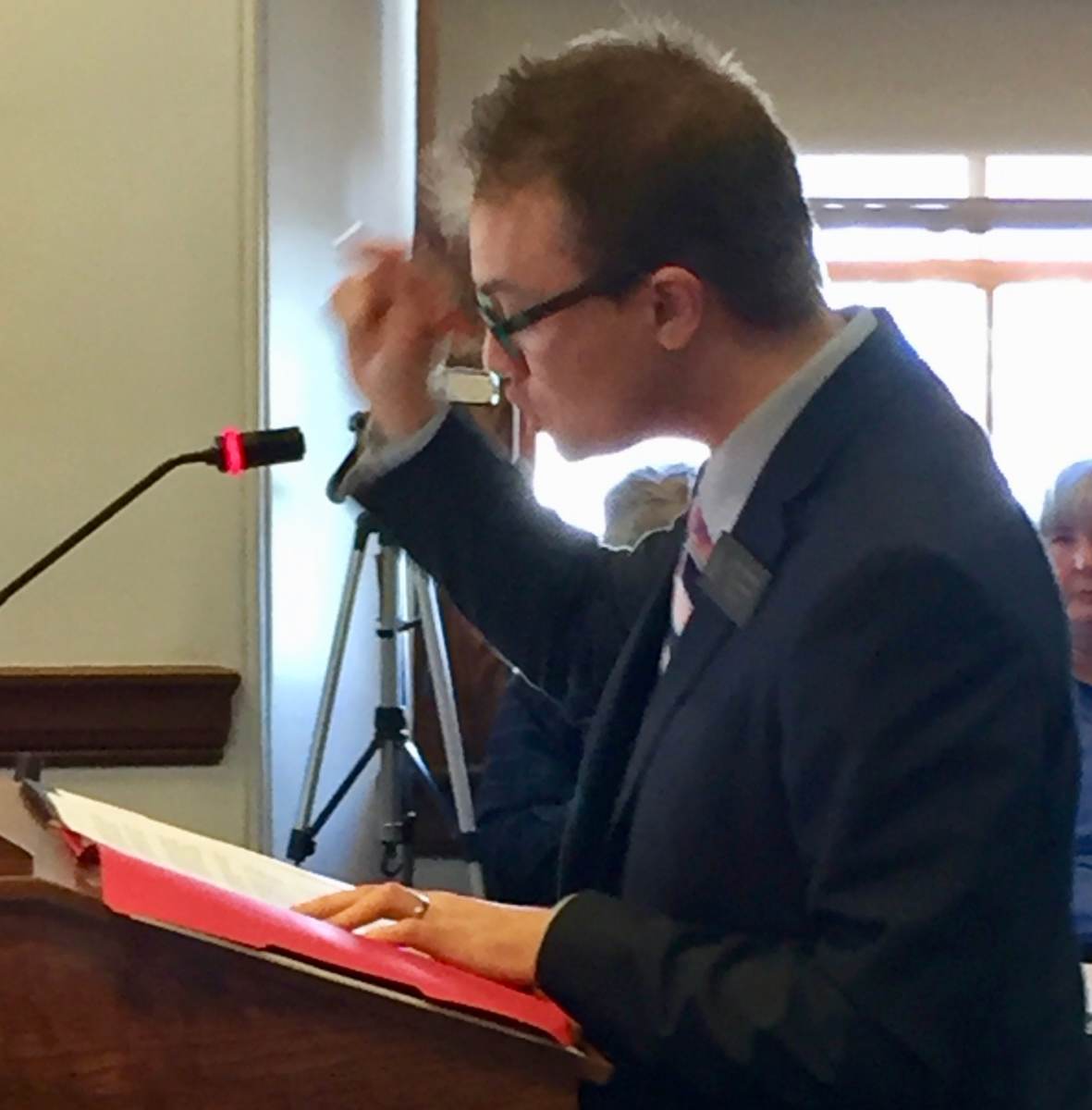
As he made the case for his bill, An Act To Limit the Influence of Lobbyists by Expanding the Prohibition on Accepting Political Contributions, Chenette, at 25 the youngest member of the Senate, eyed his House and Senate colleagues. They were sitting around their horseshoe-shaped committee desk and over their heads hung imposing historical portraits. Chenette was taking on decades of tradition and legislative power.
His hands periodically punching and slicing the air for emphasis, Chenette decried the very “system” of influence-peddling at the Statehouse that is “rigged against the average Mainer.”
“The lobbyist and special interest group with the largest checkbook has the most direct influence over public policy decision making in our state,” declared Chenette. “Legislators today are allowed to take money through their PACs and campaign committees directly from the very industry they are supposed to be regulating.”
Chenette was joining a fight waged many times over many years to rid the statehouse of special-interest money. That fight has been lost and won several times over the decades, with significant measures passed in 1996 and, most recently, 2016, to curb special-interests’ contributions.
But an examination by the Maine Center for Public Interest Reporting of recent legislative fundraising, including reviews of invitations, campaign finance reports and state law, reveals that lobbyists and legislators have found ways to legally undermine the spirit of those reforms, giving private interests continued opportunities to spread their money around the statehouse.
How do they do it: by scheduling events on dates and times that don’t violate the letter of the law. They do it by choosing how they word an invitation, avoiding words that might get them in trouble, like “host,” and instead using a safe term like “featured guest.”
The preamble to the state’s legislative ethics laws reflects what Chenette was telling committee members about their duty: “If public confidence in government is to be maintained and enhanced, it is not enough that public officers avoid acts of misconduct. They must also scrupulously avoid acts which may create an appearance of misconduct.”
But those are nice words that don’t appear to carry much influence with some legislators, many of whom edge up to within a hair’s breadth of the law without actually crossing it.
Members of both parties, Republican and Democrat, push the fundraising boundaries.
During the legislative session, for example, lawmakers or the political action committees they control are barred from accepting contributions from lobbyists, clients of lobbyists and political action committees connected to a client of a lobbyist.
Despite that restriction, a loophole allows lawmakers to raise money from lobbyists during the legislative session — for their political parties. As long as they don’t invite people to the event themselves and they’re raising money for their party and not themselves, it’s legal.
In late January, while the legislature was in session, an artfully worded invitation was sent to lobbyists by the Maine Democratic Party for the “Legislative Chairman’s Breakfast,” which was “featuring” Democratic House Speaker Sara Gideon and Senate Democratic Leader Troy Jackson, as well as party Chairman Phil Bartlett.
Because the two lawmakers were only “featured” at the event and any money raised was going to the party, and not Gideon or Jackson, the event — tickets cost from $100 to $5,000 — was within the law.
In case any lobbyists on the invitation list were confused about when they could contribute and to whom, the invitation notes, with special emphasis in bold, that “Contributions from lobbyists to the Maine Democratic Party during the legislative session are permitted. No member of the legislature, their staff, or agents solicited for this event.”
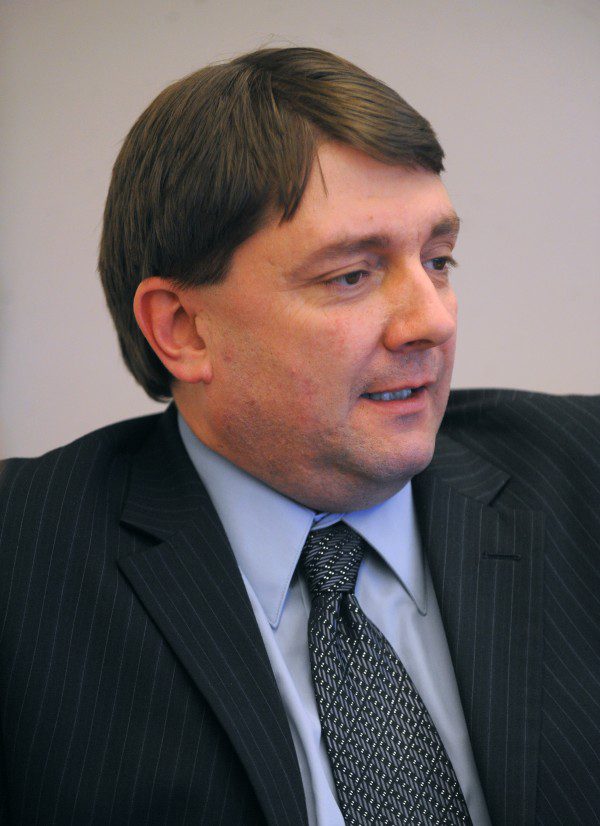
Jackson, asked how he could participate in the fundraiser and not end up beholden to the contributors who paid to attend, said, “I never made a call, never raised a dime, or even invited someone to attend this event. I merely was asked to speak to Democratic faithful about how the Senate Democrats were working to reach everyday working class people throughout this state. The people that don’t have money or lobbyists.”
Gideon did not reply to a request for a comment about her participation.
The state financial disclosure forms that would list who paid to attend the January event are not due until April 4, 2017.
If artful wording is one way to maximize legislators’ ability to fundraise within legal bounds, timing is, too. Lawmakers barred from raising money from lobbyists during the session keep fundraising right up to the start of the session – literally in one case with just a 75-minute gap.
That’s what Senate Republicans did on Dec. 7, 2016, the day the newly elected 128th Legislature was sworn in. The GOP fundraisers beat the start of the session with their invitation to the Senator Inn in Augusta for what they called “Breakfast Before the Gavel Drops.” The event was held from 7:30 a.m. to 8:45 a.m., “before Swearing-in,” as the invitation says. The legislative session convened at 10 a.m.
The cost to attend was between $100 and $2,000 with the proceeds going to the contributor’s choice of seven different GOP PACs. One of those PACs, the Maine Senate Republican Majority PAC, took in thousands of dollars that day from major construction and energy companies, banks, groups representing real estate sales and development and health care, as well as from law firms that employ lobbyists, according to campaign disclosure filings with the state Ethics Commission.
The House Democratic Campaign Committee fundraiser put a little more distance — two days — between the glad-handing and getting down to work. Their pre-session event, hosted by Speaker-elect Sara Gideon, House Majority Leader Erin Herbig and Assistant House Majority Leader Jared Golden, was held at the Augusta Country Club on Dec. 5, from 4:30 to 6:00 pm. If it was a bit more tasteful to hold it days, not minutes, before the session began, it was also more expensive: $5000 was the top “sponsorship” level.
Dozens of high-dollar contributions to the Democratic campaign committee were listed on the state campaign finance disclosure form as being made on Dec. 6, the day after the event. The contributions were made by law firms which have a big lobbying presence in the statehouse, as well the pharmaceutical, energy, health care, real estate, banking and construction industries.
Some events give lobbyists and others access to committee chairs and high-ranking party members in exchange for contributions. Senate Republicans have put on several of these events. These events were held when the legislature was not in session, avoiding the ban on lobbyist contributions when the legislature is meeting. But they would be banned under Chenette’s proposed legislation.
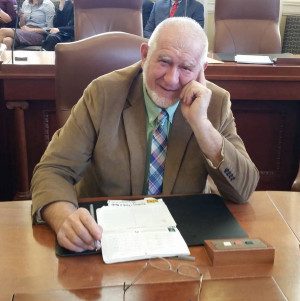
One of those events was the “Senate Chairman’s PAC Presents A Dialogue on Energy, Utilities and Technology, with special guests Senate Majority Leader Garrett Mason (and) Senator David Woodsome.” It was held Nov. 18, 2015, at Portland’s private Cumberland Club. Woodsome was — and still is — the Senate chairman of the Energy, Utilities and Technology Committee and Mason at the time was a member of the committee.
The contribution levels on this invitation employ a higher level of editorial imagination than most legislative fundraisers, which simply list “sponsor” or “host committee” levels. For this event, the top three giving levels were “Gigawatt” ($1500), “Megawatt” ($750) and “Kilowatt” ($500).
There was also a mid-December 2015 event hosted by the Republican PAC called “A Dialogue on Insurance and Banking,” and a fall, 2016 event, “A Policy Discussion” with “Special Guests.” Both events featured high-level GOP committee chairmen.
Shawn Roderick, who organized events for the Republican Senate Chairmans PAC, said the three events followed “a meet and greet format; there wasn’t a formal program. During the course of the event, featured speakers from the caucus membership would speak to attendees about their accomplishments and goals in their committee.”
Sen. Woodsome described the event he attended as a typical legislative fundraiser.
“You have people, lobbyists, people who are interested in a specific field that are attracted to these fundraisers, so they come and hobnob and talk and you give a little speech and off you go,” Woodsome said, adding that there were “probably 25 different industry representatives” at the event.
“I always am amazed at these events because there really is no business done there,” he said. “You talk about families, you talk about the weather, the Patriots, whatever. There’s very little lobbying going on.
“The biggest thing,” said Woodsome, “is to get to know (each other) so that the lobbyists or representatives of these businesses know me, or know Garrett and we can put a face to the name … I figure it’s the old time way you do it, you pay to play. I can’t say that it doesn’t pay off, I can’t say that it does. As far as my own personal character or moral makeup or ethics, I really have to look at all the issues here and I try very hard not to be swayed by somebody.”
The very same week in February that Chenette was exhorting lawmakers to get money out of politics, his Democratic colleague, Rep. Erin Herbig, the House majority leader, emailed a solicitation to a fundraising event for a nonprofit. Herbig’s spokeswoman said the solicitation went to “her networks which include friends, family and community members.” The email was obtained by the Center from a lobbyist who was on Herbig’s list.
The event in Belfast was raising money for the Waldo County Woodshed, which provides heating assistance to families in need in the county.
“If you can’t make it,” wrote Herbig, “you can still donate to the Woodshed online.”
Despite the fact that Herbig’s email was sent from a personal email account, it was signed, “Erin Herbig, House Majority Leader.”

Donating to a lawmaker’s favorite charity is another legal way lobbyists can curry favor with legislators during the session.
Besides the feel-good aspect of giving to charity, such contributions offer advantages all around: to lobbyists who are eager to get on the good side of legislators, because giving to a legislator’s favored charity — and not to them — avoids the law barring legislators from soliciting and accepting money for their campaigns or PACs from lobbyists during the session. And those donations help the legislators look good with their constituents who run the charity.
Unlike regular political contributions, which are reported in campaign finance filings, these donations to charities at a politician’s behest aren’t made public.
The entire legislature can get involved in fundraising from lobbyists by soliciting contributions to the charity that honors legislators. The Maine State Legislative Memorial Scholarship awards college scholarships in honor of legislators and legislative staff.
Prominent lobbyists John Delahanty and Andrea Cianchette Maker wrote in their statehouse blog that the annual fundrasing auction for the scholarship “brings together legislators, staff, lobbyists, and members of the administration” — a recognition of the chumminess between policymakers and lobbyists.
In the latest newsletter about the scholarship fund, potential contributors are told to send their donation forms and items “to the Office of the Revisor, or the Senate Democrat or House Republican Office…”
John Brautigam, a former Democratic legislator who is now a lawyer for the campaign finance reform group Maine Citizens for Clean Elections, said these events create the appearance that legislators can be compromised.
“When the public understands that this is happening, they are concerned,” said Brautigam. “I don’t know if we can prove that votes were bought or sold, but even when you have to ask the question, you’ve lost something important to democracy.”
Brautigam’s group, which led the successful fight in the 90s to establish the state system of public funding for campaigns, supports Chenette’s bill to ban all lobbyist contribution to legislators’ campaigns or PACs. So does the Senate Democratic leadership. Senate Republican leader Mike Thibodeau said through his spokesman, James Cyr, that he had not taken a position yet on the bill and would “wait and see” what it looked like once it emerged from committee consideration.
For his part, Chenette understands that, even if his bill passes, the fight may never be over to keep special interest money from influencing legislators. But he said that it’s cynical to use that as an excuse for inaction.
During debate over a campaign finance ethics reform bill last session, Chenette said a legislator opposed the bill because he thought special interests would find a way around it. The legislator said, Chenette recalled, “When you plug one hole, another opens.”
“They use that as a rationale, an excuse to not even entertain passing a bill,” said Chenette. “My view is that regardless of whether they try to go around (a new limit), that should never stop us from trying to make the system better, cleaner and more ethical.”


